NI 100: Calling the 'midwife' who oversaw birth of new state
- Published
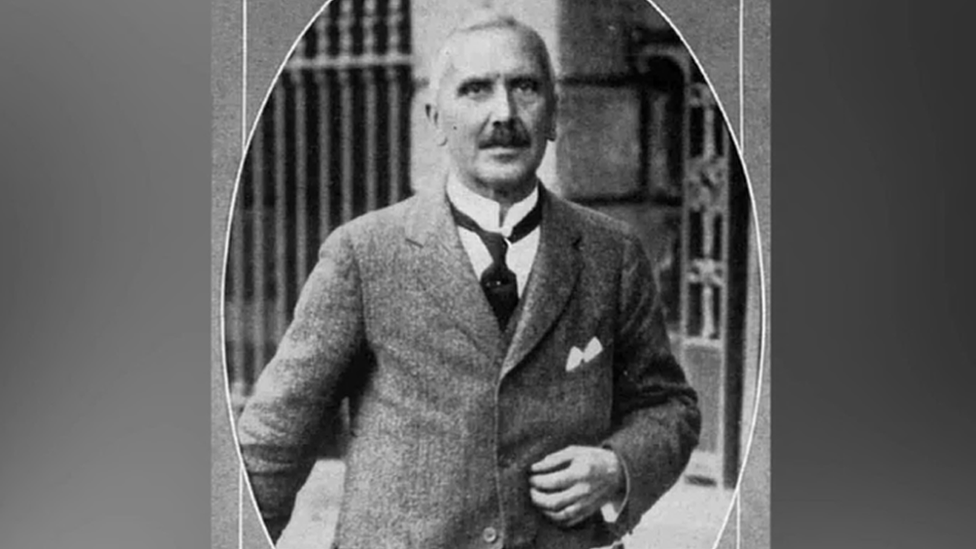
Sir Ernest Clark was described as the "midwife" for his role in establishing Northern Ireland
For the first half of the 1920s Sir Ernest Clark had the mammoth task of bringing Northern Ireland into existence.
The politicians may have taken the decisions, but as the first head of the new Northern Ireland Civil Service he had to make it all happen.
His role was so important that he would be described by the future Prime Minister of Northern Ireland Basil Brooke as "the midwife".
But it was not an easy birth.
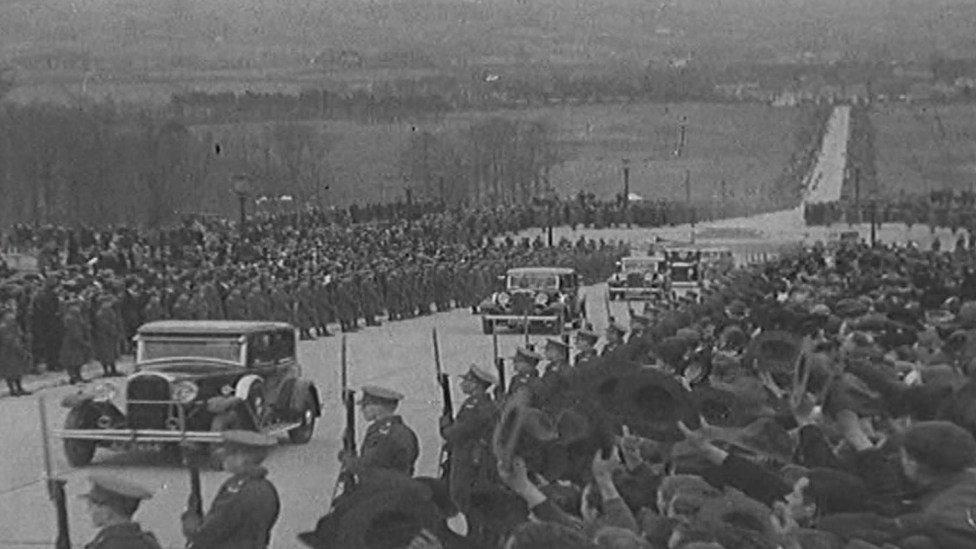
The purchase and development of the Stormont estate was one of the civil service's first jobs
Against a backdrop of violence on the streets, this tax expert from England arrived in Belfast in 1920 to form a new administration - in his own words - "armed with only a table, a chair and an act of Parliament".
By many accounts, he worked 16 hours a day, seven days a week.
Based in the Scottish Provident Building in Belfast city centre and with a staff of only about 20, he is credited with providing stability to the new state.
"It actually is debatable whether there would be a Northern Ireland entity if he didn't act as quickly as he did in creating the structures back then," says historian Cormac Moore.
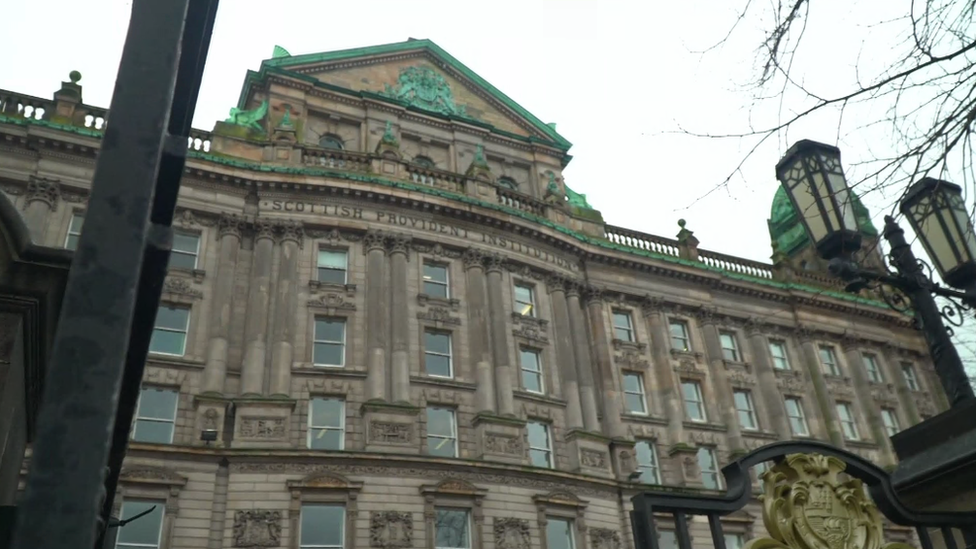
Sir Ernest spent long days at work with his small team in the Scottish Provident Building
"Even though all of Ireland was part of the UK, Ireland was treated as a separate entity with a lord lieutenant and a chief secretary.
"And it had a whole administration based out of Dublin and you had to cut that asunder and create a whole new jurisdiction from scratch.
"In Dublin there was loads of buildings, loads of ready-made staff - in Belfast you had nothing."

The BBC News NI website has a dedicated section marking the 100th anniversary of the creation of Northern Ireland and partition of the island.
There are special reports on the major figures of the time and the events that shaped modern Ireland available at bbc.co.uk/ni100.
Year '21: You can also explore how Northern Ireland was created a hundred years ago in the company of Tara Mills and Declan Harvey.
Listen to the latest Year '21 podcast on BBC Sounds or catch-up on previous episodes.

One of the first decisions the new civil service made was to purchase the Stormont estate for £20,000.
It would be the future home of the new Northern Ireland parliament, Sir Ernest's political masters, but it was not finished until 1932.
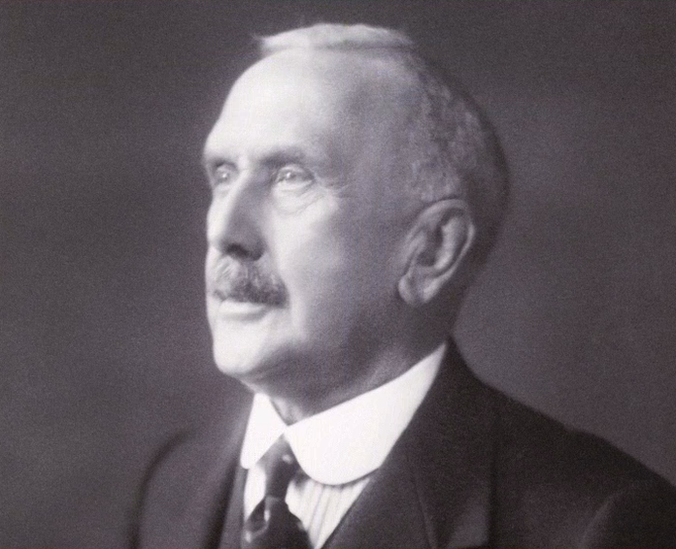
Sir Ernest's time in Northern Ireland was brief but significant
One of Sir Ernest's successors is David Sterling - as head of the Northern Ireland Civil Service until he retired last year he was in charge during an equally challenging and difficult period.
"Certainly you can see parallels between the challenges that he faced then and today," says Mr Sterling.
"Today the Northern Ireland Civil Service is having to deal with Brexit, which means untangling if you like a lot of arrangements that have been put in place over 40 years.
"Almost five years after the referendum there's still a lot to be done.
"We're in the middle of the Covid pandemic, again 100 years on from the Spanish flu pandemic, and we are facing a recession which some economists say could be the deepest in 300 years… so the context in some respects is similar.
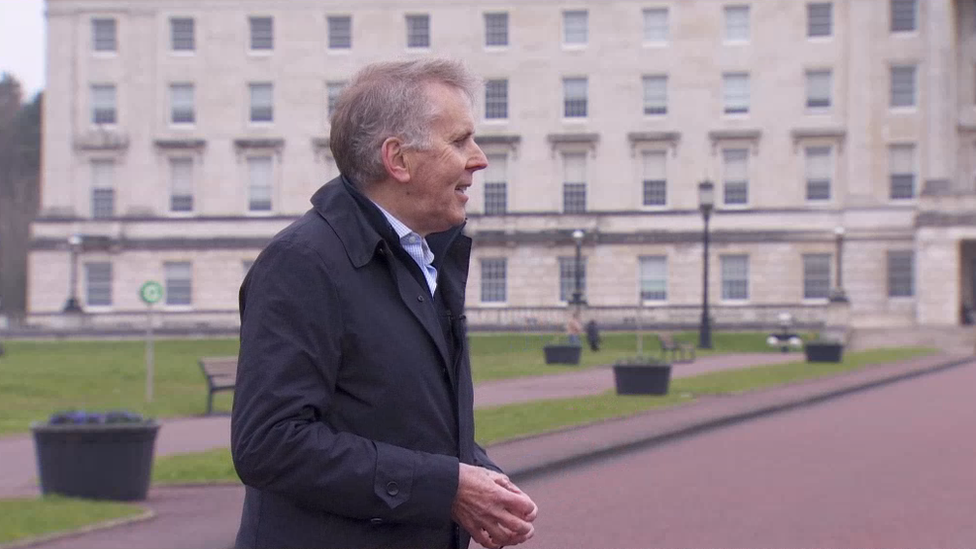
David Sterling see similarities between what the civil service faced in the 1920s and what it is dealing with now
"I think the challenge is slightly different.
"Setting up a new administrative structure from scratch back then... you can't underestimate the scale of the achievement 100 years ago."
Sir Ernest remains a relatively unknown figure - he left Northern Ireland in 1925 and there's no statue or plaque in tribute to him.
But is that the lot of the civil servant?
"As a civil servant if you become part of the story then it becomes much more difficult for you to do your job," says Mr Sterling.
"So we do tend to be quite happy to stay in the background!"